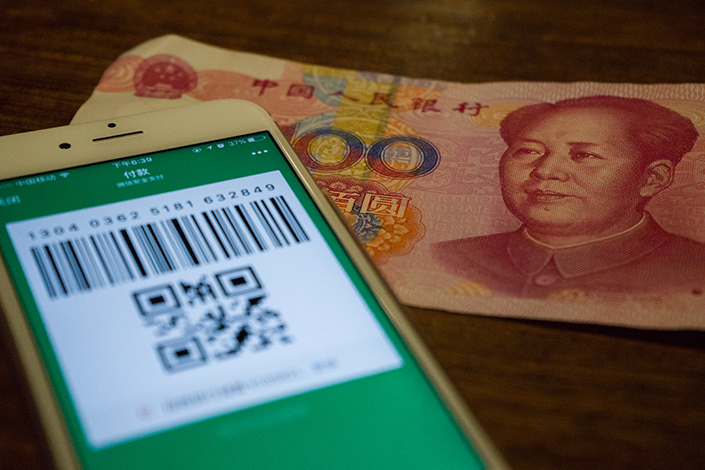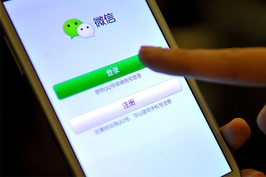WeChat E-Payment Service Sets up Shop in U.S.

Leading internet company Tencent Holdings Ltd. is aggressively trying to build up its U.S. merchant network as it seeks to export its popular WeChat payment service via a recent tie-up with a major local partner.
WeChat, China’s most popular messaging app, teamed up with Silicon Valley-based mobile payment startup Citcon in February, marking a big advance as it tries to enter the world’s largest economy. The company last week announced its official entry to the market, saying its users there can now pay at certain stores by using its in-app electronic payment service.
WeChat has already secured a number of merchant partners, including the Baymont Inn & Suites Anaheim hotel close to the southern California’s Disneyland Resort; Japanese restaurant Hana Zen in San Francisco; the TBaar teahouse in New York City; and a ski training camp in Sandy, Oregon. The company is seeking additional partners, and will initially target Chinese travelers to the U.S., a spokeswoman said.
WeChat’s payment service is following in the footsteps blazed by Alipay, the main asset of Ant Financial Services Group; and the even-older UnionPay, a state-owned giant that operates China’s largest electronic payments network.
Those three services dominate the Chinese electronic payments market. But UnionPay and Alipay have been expanding into Asian and Western markets for the last decade, initially targeting Chinese tourists traveling to those countries. WeChat is taking a similar approach, and already has merchant partners in Southeast Asia.
Chinese tourists spent $261 billion on outbound travel in 2016, an increase of $11 billion from 2015, according to the World Tourism Organization. The U.S. was among their top 10 destinations last year, said a report jointly issued by China Tourism Academy and travel agency Ctrip.
WeChat is also expanding into Europe, with plans to set up an office in the U.K. alongside existing ones in Italy, Tencent Europe director Andrea Ghizzoni said in a recent interview.
Despite their efforts, WeChat, Alipay and UnionPay have had far more difficulty tapping local consumers, relying mostly on Chinese citizens living and traveling overseas to be their main customers.
Contact reporter Song Shiqing (shiqingsong@caixin.com)

- 1Cover Story: China Carves Out a Narrow Path for Offshore Asset Tokenization
- 2Drownings Shake Chinese Enthusiasm for Travel to Russia
- 3Over Half of China’s Provinces Cut Revenue Targets
- 4Li Ka-Shing’s Port Empire Hit by Forced Takeover Amid Panama Legal Dispute
- 5In Depth: China’s Mutual Fund Industry Faces Overhaul After a Banner 2025
- 1Power To The People: Pintec Serves A Booming Consumer Class
- 2Largest hotel group in Europe accepts UnionPay
- 3UnionPay mobile QuickPass debuts in Hong Kong
- 4UnionPay International launches premium catering privilege U Dining Collection
- 5UnionPay International’s U Plan has covered over 1600 stores overseas




